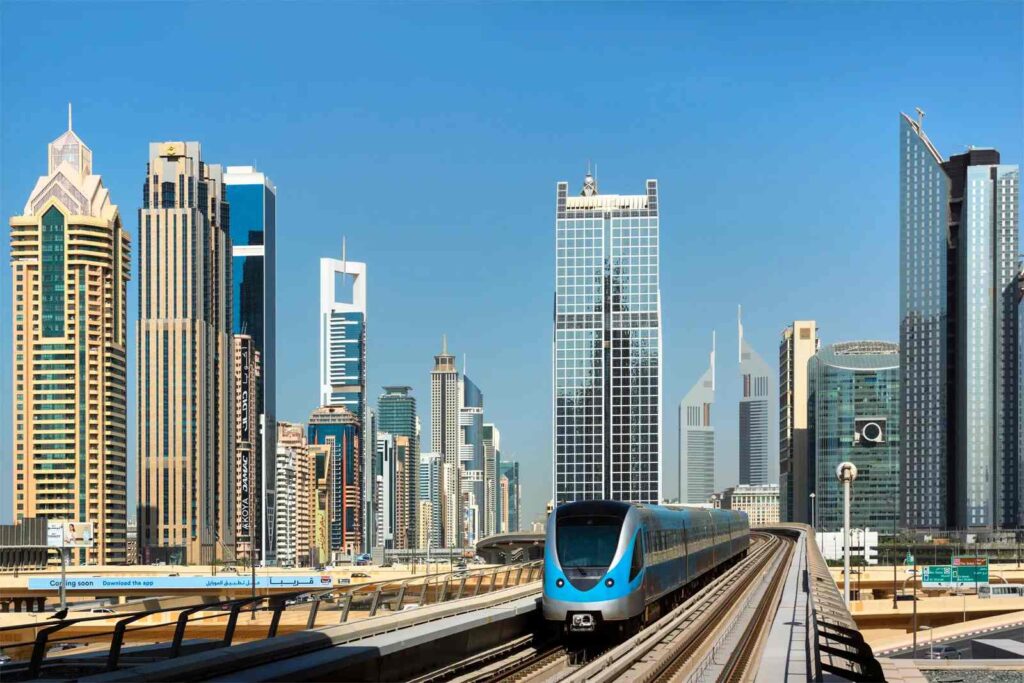According to Deloitte’s annual Real Estate Predictions report, the Dubai residential real estate market saw a 19% increase in rental rates and a 20% increase in sales prices in 2024.
A 5% population growth, record-high residential transactions, and strong economic expansion have all contributed to the Emirate’s continued standing as a safe haven for investors.
While rental increases are consistent across all segments, villas continue to outperform apartments in terms of price growth.
Dubai real estate predictions
Although the new supply may stabilize price increases later in 2025, it is unlikely to slow the sector’s overall momentum.
Dubai’s office sector showed resilience in the face of global economic fluctuations, as evidenced by the 17% annual increase in rents, which reflected the ongoing demand from multinational corporations looking for prime office space.
With total retail spending in Dubai predicted to rise by 6% between 2025 and 2027, the retail industry continues to be a major growth engine.
With average hotel occupancy rates reaching 78% in 2024, the hospitality industry achieved unprecedented heights.
Oliver Morgan, Partner at Deloitte Middle East, said: “Dubai’s real estate sector continues to thrive due to strong investor confidence, a diversified economy, and a strategic vision for long-term urban development with a robust masterplan.
“It is driven by strong economic fundamentals, attractive lifestyle offerings, and progressive policies.
“The sustained influx of expatriates and tourists over the past year, coupled with major infrastructure projects, positions Dubai as one of the most dynamic real estate markets in the world.”
Residential real estate
With average sales prices increasing by 20% in 2024 to AED 1,597 ($435) per square foot, Dubai’s residential market continued on its upward trajectory.
In 2024, sales transaction volumes reached previously unheard-of heights, with 44% of transactions taking place in the secondary market.
There is still a high demand for reasonably priced, family-friendly townhouses and villa communities.
Due to the ongoing demand for both villas and apartments, gross rental yields increased to 6.7%. With annual increases ranging from 39% to 46%, Dubailand, Meydan, and International City saw the largest rent increases.
Cash buyers and current residents looking for reasonably priced villas and townhouses continue to dominate the rental market.
Hospitality
With 18.7 million overnight visitors in 2024—a 9% increase from the year before—Dubai’s Tourism Industry continued to grow. The average hotel occupancy rate also increased to 78%.
Due to the success of international tourism campaigns and the Emirate’s standing as a top luxury and business travel destination, Revenue Per Available Room (RevPAR) rose by 1%.
Dubai’s position as a world leader in tourism has been strengthened by the launch of fresh hospitality brands and creative travel ideas.
Office market
Premium towers like ICD Brookfield in the DIFC maintained occupancy rates above 95% in 2024, indicating the continued interest of multinational corporate and financial firms in Grade A office space.
Due to the continued high demand for prime office space, rents increased by 12% in 2024.
Corporate expansions and relocations are still fueled by Dubai’s pro-business policies and economic growth, even in the face of regional competition from Abu Dhabi and Riyadh.
Retail
With total sales expected to rise by 6% between 2025 and 2027, retail real estate continues to profit from rising consumer demand as well as the influx of both new residents and tourists.
Retail real estate is changing as a result of e-commerce growth, as companies embrace hybrid digital and brick-and-mortar strategies. In order to increase accessibility and convenience, community-based retail hub expansion is emphasized in Dubai’s Urban Master Plan 2040.
Neighborhood retail experiences are changing all over the city as a result of Dubai’s strategic retail initiatives, as well as its emphasis on sustainability and technological innovation.
Industrial and logistics
The demand for industrial real estate in Dubai is being driven by the e-commerce, logistics, and manufacturing sectors.
JAFZA, Dubai South, and DIP were the industrial zones in the south of Dubai with the highest rental rates. In JAFZA, warehouse rental prices increased by 28% on an annual basis.
In 2024, the UAE’s import and export trade increased by 8.4% and 6.6%, respectively, solidifying the emirate’s position as a major hub for trade and logistics.
2025 Dubai real estate forecast
With the help of ambitious government programs, infrastructure improvements, and rising foreign direct investment, Dubai’s real estate market is poised for long-term growth.
Due to increased supply, it is anticipated that the residential, commercial, and hospitality markets will continue to grow, with some segments experiencing moderate stabilization.
Dubai’s emphasis on sustainable urban development, transportation infrastructure, and smart city initiatives is expected to increase the city’s appeal to both residents and investors as it moves closer to its 2040 Urban Master Plan.
